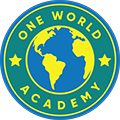Our Curriculum
Do take a look at what we offer, or better, please call in for a chat if you have time!
The school year runs from August to June and the current school calendar can be found at https://theoneworldacademy.org/our-calendar
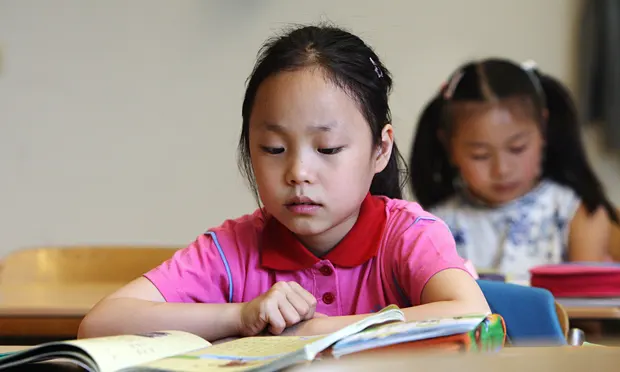
| Time | Period |
|---|---|
| 08:55 | Homeroom |
| 09:00 | 1 |
| 09:50 | 2 |
| 10:40 | Break |
| 11:00 | 3 |
| 11:50 | 4 |
| 12:40 | Lunch |
| 13:20 | 5 |
| 14:10 | 6 |
| 15:00 | Close |
| 15:00-16:00 | Extra Cuuricular |

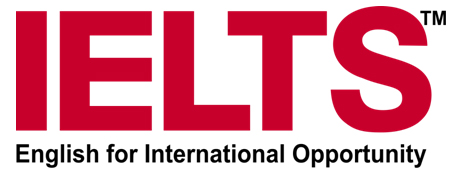
| Age on 1st August | Level | Qualifications | |
| 2+ | Early Years | Day Care | Early Years Foundation Stage |
| 3+ | Nursery | ||
| 4+ | K1 | ||
| 5+ | K2 | ||
| 6+ | Lower Primary | Year 1 | |
| 7+ | Year 2 | Cambridge Starters | |
| 8+ | Upper Primary | Year 3 | |
| 9+ | Year 4 | Cambridge Movers | |
| 10+ | Year 5 | ||
| 11+ | Year 6 | Cambridge Flyers | |
| 12+ | Lower Secondary | Year 7 | Checkpoint Primary |
| 13+ | Year 8 | Key English Test | |
| 14+ | Year 9 | Checkpoint Secondary | |
| 15+ | IGCSE | Year 10 | Preliminary English Test |
| 16+ | Year 11 | IGCSEs in: English Mathematics Options from: • Additional Mathematics • Biology • Chemistry • Physics • Combined Science • Global Perspectives • ICT/Computer Science • Business Studies • Economics • Accounting • Chinese as a Foreign Language IELTS |
|
Our Subject Distribution
| Periods Per Week | ||||
|---|---|---|---|---|
| Subject | Year 1-2 | Year 3-6 | Year 7-9 | Year 10-11 |
| English | 6 | 6 | 6 | 7 |
| Mathematics | 5 | 5 | 5 | 6 |
| Science | 4 | 4 | 4 | - |
| Myanmar Lang & Culture | 4 | 4 | 4 | - |
| Global Perspectives | 2 | 2 | 2 | - |
| ICT | 2 | 2 | 2 | - |
| Physical Education and Library | 2 | 2 | 2 | - |
| Music | 2 | 1 | 1 | - |
| Art | 1 | 1 | 1 | - |
| Library | 1 | 1 | 1 | - |
| Young Enterprise | - | 1 | 1 | - |
| Assembly & PSHE | 1 | 1 | 1 | 1 |
| IGCSE (any 4 options) | - | - | - | 16 |
| 30 | 30 | 30 | 30 | |
Early Years (ages 2 - 5)
All the evidence suggests that investment in the education of the very young makes the biggest difference to their lives overall. Children who attend a quality early learning centre show marked advances socially and in literacy and numeracy that really put them ahead.
Our aim is to provide a safe, caring and friendly start in life that builds this knowledge, skills, understanding and confidence in ways that are always entertaining and also fun, ensuring the fastest gains and helping to form the best habits and attitudes towards learning that can last forever.
Our programme is based on the world-renowned UK’s Early Years Foundation Stage which offers a wealth of well-developed, tried and tested activities, resources, assessments and teacher education material. All progress is carefully and accurately charted against these internationally recognised and applied standards, so you will know straightaway how well your child is doing when compared to others, both in Cambodia and abroad.
Lastly, as well know, success does not mean much unless we are also happy and healthy. We therefore put kindness, enjoyment, warmth, laughter and enjoyment as well as healthy, holistic living at the very heart if what we do – to see how we do this , do try one of our Open Days.
Our curriculum is globally minded but also structured on the United Kingdom’s Statutory Framework for the Early Years Foundation Stage published in 2017, adapted to the needs of children and parents here in Myanmar.
We have chosen this framework because it is well-researched, detailed, often updated and abundantly-resourced, and many of the world’s best teachers know it well.
The Early Years Foundation Stage identifies goals in knowledge, skills and understanding in seven areas.
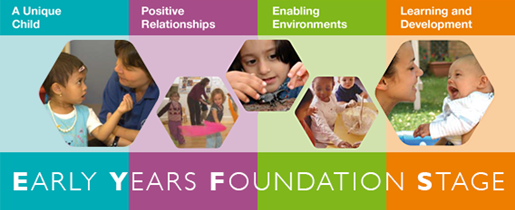
There are three prime areas
- Communication and language
- Physical Development
- Personal, Social and Emotional Development
There are four other, specific areas:
- Literacy
- Understanding the World
- Mathematics
- Expressive arts and design
Activities through which this learning may be developed may be either:
- Playing and exploring
- Active Learning
- Creating and thinking critically
The EYFS is broken down into four age bands, called
Development Matters bands:

For each band, there are statements of development. Attainment in these areas is assessed informally in class and then shown clearly on your child’s Report Card issued at the end of each term, for discussion on parents’ day. Evidence of attainment in these areas may be gathered informally by observation a child’s Learning Journal or a Record of Achievement comprising photos and pieces of work.
For each goal, there are three separate achievement levels:
- Emerging: your child is working below the expected level
- Expected: your child is working at the level expected for his/her age
- Exceeding: your child is working above the expected level
The Report Card will also detail a written summary explaining special achievement and areas for development. Assessment is ongoing but an a Final EYFS Profile is completed in the last year, Kindergarten 2, when the child will be at least five years old.
A child is considered to have a ‘good level of development’ if they have achieved at least the Expected level in:
- Personal, Social and Emotional
- Physical Development
- Communication and language,
- Literacy
- Mathematics.
Final EYFS Report Card
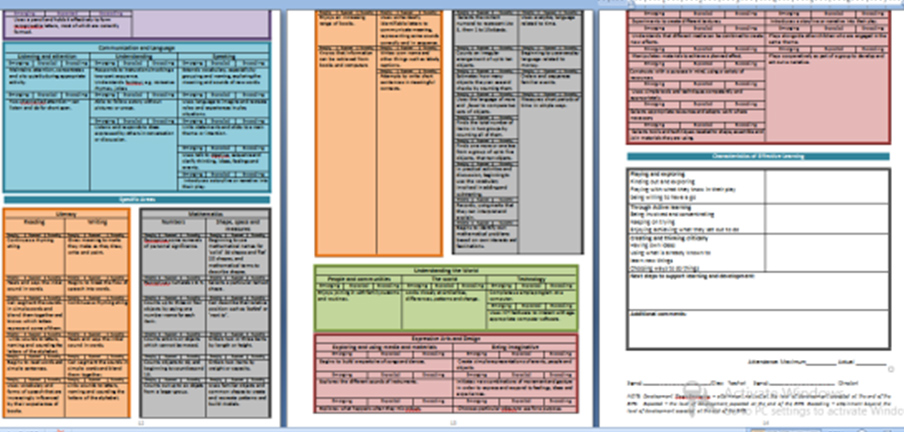

Primary (ages 6-11)
Primary
Why Cambridge Primary?
Cambridge Primary is taught in more than 1,000 schools in over 100 countries. The programme is designed to develop young learners who are confident, reflective, innovative and engaged.
We offer:
- Cambridge Global English
- Cambridge Primary Maths, Science, Global Perspectives and Click Start/ICT Starters
What qualifications are available?
Cambridge Young Learners English
The Cambride Young Learners Exams (YLE) test English Language attainment in Reading, Writing, Speaking and Listening at 3 levels: Starters, Movers and Flyers.
Tests are set and marked in the UK, and certificates are issued from Cambridge about two months after the exam
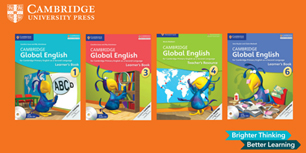
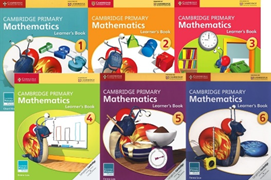
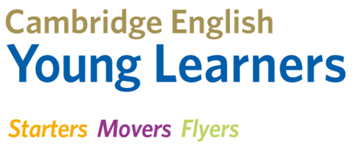
| Year | Age | Exam |
|---|---|---|
| 3 | 8+ | Starters |
| 4 | 9+ | Movers |
| 5 | 10+ | Flyers |
There is no pass or fail: students are awarded a number of shields (up to five) based on their total score. |
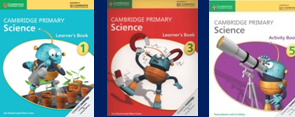

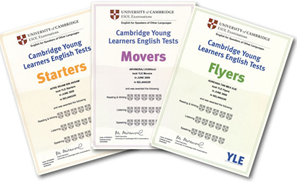
Cambridge Young Learners exams are a first step on the Common European Framework of Reference (CEFR) – the international standard in language learning
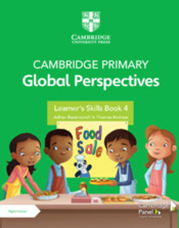
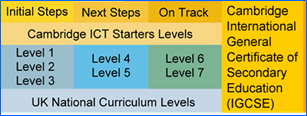
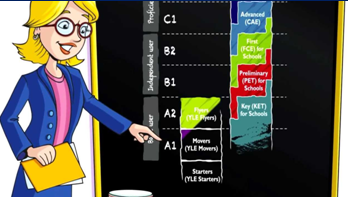
Cambridge Primary Checkpoint
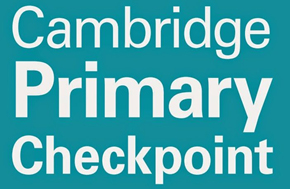
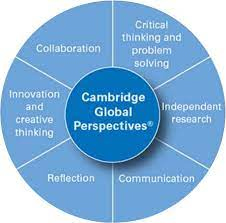
E-Learning
On the theme of ICT, we are now moving towards the Flipped Learning – the acquisition of knowledge and skills gained by viewing the innumerable on-line lessons that are now freely available.
The effect will be to switch classroom focus more towards assessment and feedback on learning gained via a device.
We now support the carefully monitored initiative of Bring Your Own Device (BYOD), and invite parents to Join us on EDMODO- the hip way for teachers, students and parents to connect on-line.

We also prepare students for Cambridge Primary Checkpoint in:
- English as a Second Language
- Maths
- Science
- Global Perspectives
Checkpoint is recognised around the world as a measure of student attainment at the end of the Primary years and is supported by a vast array of resources.

In addition to Cambridge Global English,
Maths, Science, ICT and Global
Perspectives we also offer:
- Myanmar Language & Culture
- Art
- Music
- Physical Education or Library
- PSHE (Personal, Social and Health Education).

Secondary (ages 12-14)
It provides a natural progression from Cambridge Primary and leads to world- recognised university entrance qualifications.
We offer:
- Cambridge Global English
- Cambridge Maths
- Cambridge Science
- Cambridge ICT
- Cambridge Global Perspectives
The Cambridge English Assessment tests English Language attainment in Reading, Writing, Speaking and Listening. Tests are set and marked in the UK, and certificates are issued from Cambridge about two months after the exam.
We offer:
- Key English Test
- Preliminary English
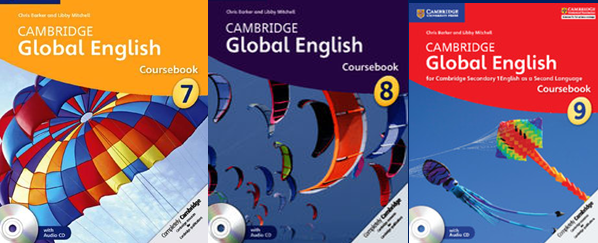
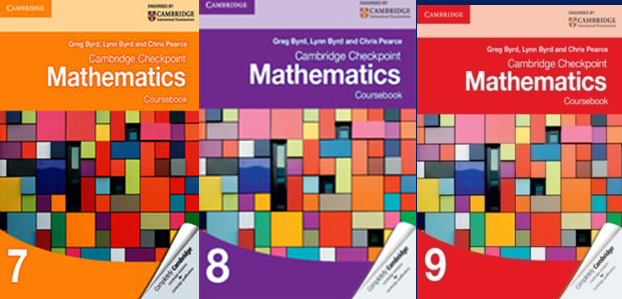

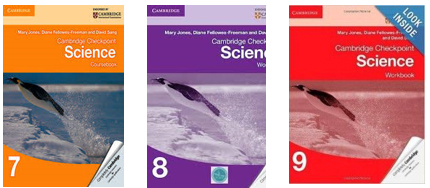
Cambridge Secondary Science Years 7-9 encourages enquiry and the language is written to be accessible to second language learners. It comes with a Learner’s, Activity, Challenge and Skills Builder’s books to consolidate learning.
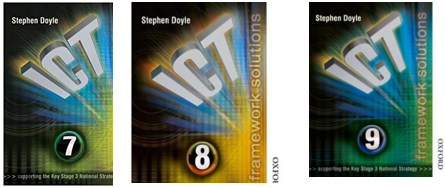
ICT Framework Solutions offers a sound foundation in all modern applications and uses of ICT in the home, work and the enviornment – a vital part of any modern international school currculum.
Cambridge Secondary Checkpoint

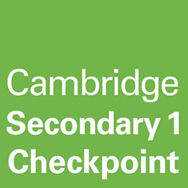
- English as a Second Language
- Mathematics
- Additional Mathematics
- Biology
- Chemistry
- Physics
- Combined Science
- Information & Communications Technoogy or Computer Science
- Global Perspectives
- Business Studes
- Economics
- Accounting
Cambridge Global Perspectives Years 7-9
Issues covered in this engaging programme:
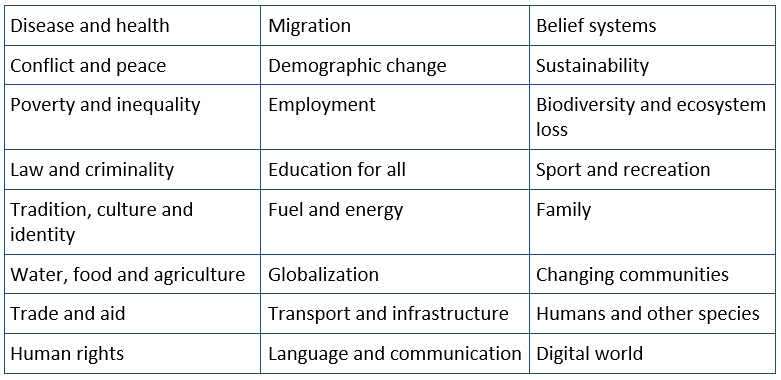
We also prepare students for Cambridge Secondary Checkpoint in:
- English as a Second Language
- Maths
- Science
- Global Perspectives
Every year there are over 90,000 entries for Cambridge Secondary Checkpoint exams for 11 to 14 year olds.
Gateway to the World! (Ages 14-17)
Cambridge International School syllabi, examinations, learning resources and teacher training events are recognised by the world’s best universities and leading employers and have a proven reputation for being an excellent preparation for study and employment beyond higher education. They are part of the eight hundred year old University of Cambridge, recognized as one of the world’s most well-established and renowned institutions and a leader in setting the highest academic standards.
All qualifications such as IGCSE, AS and A Level are regularly monitored to meet international requirements and therefore open doors worldwide for Cambridge learners.
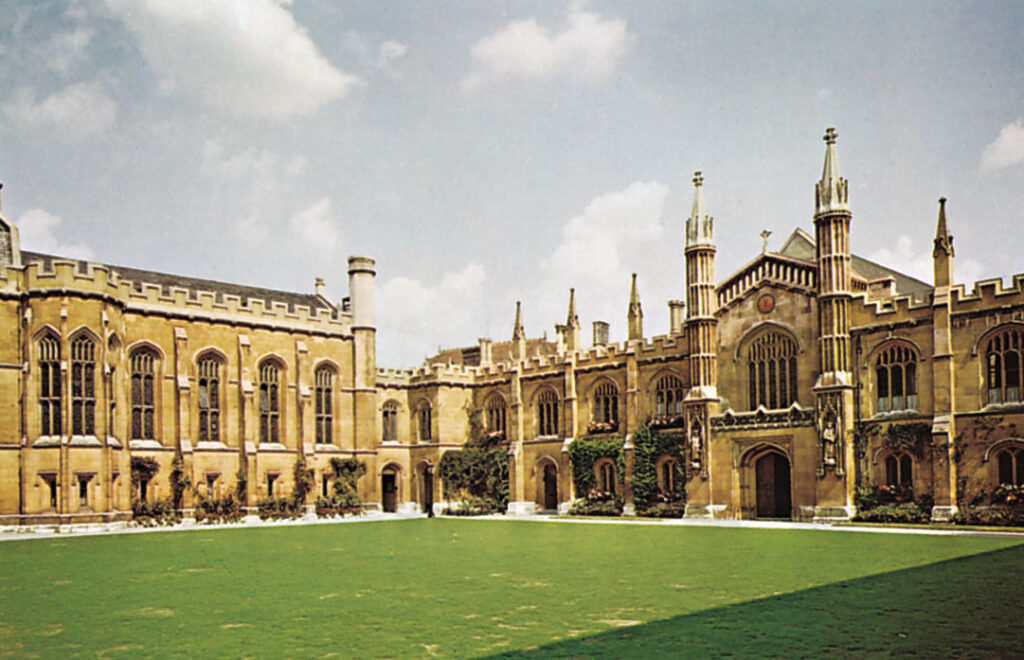


Here are some facts:
- Over 10,000 schools in more than 160 countries offer Cambridge programmes and qualifications.
- Cambridge International Examinations is the world’s largest provider of international education programmes and qualifications for 5 to 19 year olds.
- Cambridge IGCSE is the world’s most popular international qualification for 14 to 16 year olds. It is taken in over 140 countries and in more than 5,500 schools around the world.
- Cambridge International AS and A Levels are taken in more than 125 countries with more than 460,000 entries each year.
- Every year CIE receives more than 620,000 subject entries for Cambridge O Level from over 50 countries and produces around 5.7 million question papers each year.
Cambridge examinations are marked by around 9000 highly skilled examiners. - In 2008, it celebrated the 150th anniversary of the formation of the parent organisation Cambridge Assessment, and in 2009 it celebrated the 800th anniversary of the University of Cambridge.
- CIE runs more than 1100 training events a year providing thousands of teachers from across the globe with the skills and knowledge they need to help their learners succeed.
We offer cambridge IGCSEs in:
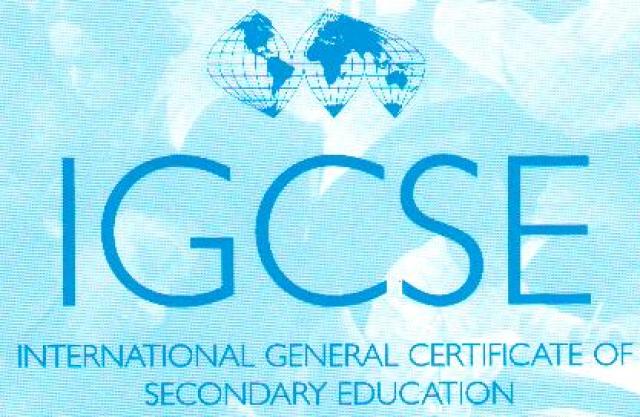
- English as a Second Language
- Mathematics
- Additional Mathematics
- Biology
- Chemistry
- Physics
- Combined Science
- Information & Communications Technoogy or Computer Science
- Global Perspectives
- Business Studes
- Economics
- Accounting












GENERAL – All Years
Our Assessment & Report Card
We encourage regular formative assessment which will include a range of modern, relevant methods such as in-class tests, homework, learner presentations and observation of task performance against assessment criteria designed to give learners, teachers and parents a clearer picture of each child’s progress and areas for development.
For our Report Card, all end-of-term summative assessment for English, Maths and Science is based on either:
- Cambridge Progression Tests Years 1-9
- Cambridge Checkpoint for Years 6 & 9
- Cambridge English matched to the Common European Framework of Reference
- Singapore Examination and Assessment Board standard papers for Math and Science, including the IPSLE (International Primary School Leavers’ Exam) for Years 2-9
- IGCSE Past papers.
Assessments for Global Perspective, ICT and Myanmarsar are set internally according to what has been taught.
Here are our term weightages:
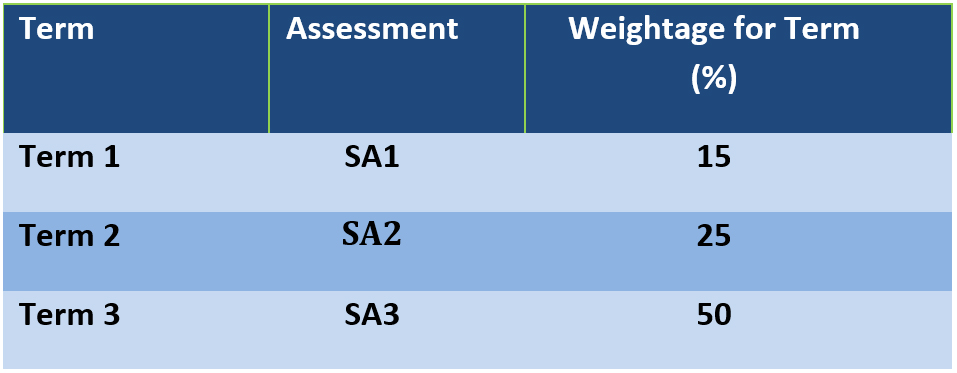
Grades boundaries are identical to those set by Cambridge University.
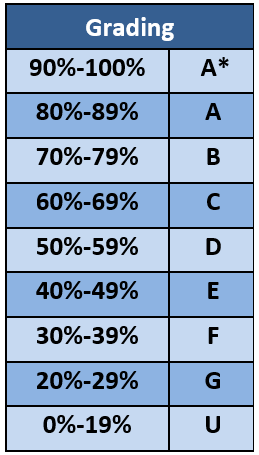
Absence from Exams
As in other schools, if your child is absent from any Summative Assessment for a Valid Reason (VR) they can receive a mark based on their average previous scores for that subject. VRs can only count up to a maximum of half of a student’s mark allocation for that subject for that Term.

Our Weekly Planner

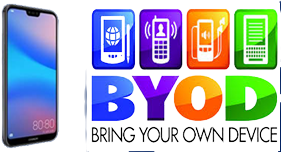

E-Learning
We now encourage teachers to source on-line resources such as the numerous You Tube videos available as part of our Flipped Learning approach – the setting of on-line instructional material followed by in-class assessment – that is gaining real currency globally nowadays.
Viewing on-line lessons can be an alternative to the usual textbook based or written homework and there is evidence to suggest that, particularly for Science and Humanities, a video lesson can be a more effective alternative to more traditional methods of study, if supported by in-class assessment. Such tests might include games or more formal testing such as matching, labelling, sorting, sequencing, gap filling or table completion.
Similarly, we do encourage BOYD (Bring Your Own Device) when it can be shown that it enhances learning.
Raising Standards of English
Although English Literature is not officially timetabled, it is understood that it is particularly useful for the development of a proficiency in English amongst young learners. Literature exposes children to vocabulary, pronunciation, grammar, idiom, inferential and thinking skills through entertainment and also provide abundant ideas for language-related practice activities.
In addition, standards of English are raised through a compulsory Reading Programme, and an assessed Personal Dictionary issued to all students, and a uniform Marking Guide for all teachers.
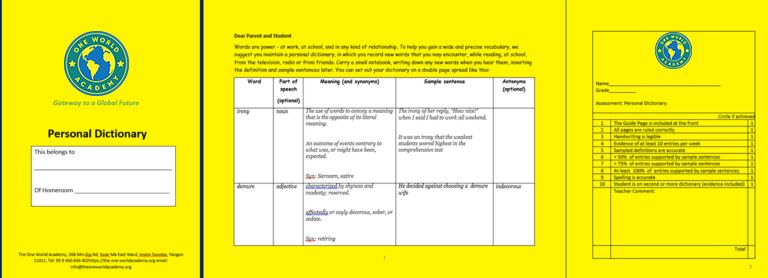
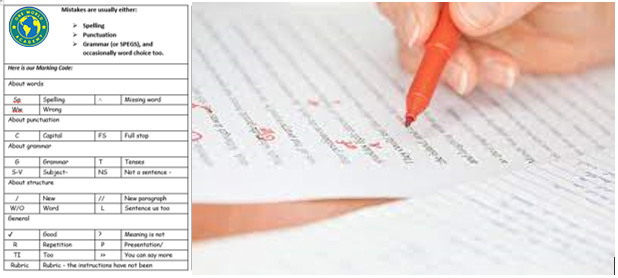
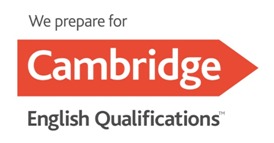
- 100 Years of experience.
- 52,000 preparation centres and 2,800 exam centres in 130 countries.
- Qualifications aligned with the Common European Framework of Reference for Languages (CEFR) – the international standard in language learning Accepted globally for work, immigration and study – Over 15,000 universities, employers and governments accept Cambridge English exams.
- Access to a variety of English – American, British, Australasian.
- A vast range of learning and exam preparation resources available.
- A choice of when, where and how to take an exam including by computer.
- A range of levels in real life English skills – we currently offer 5!
- All tests are essentially presented in the same format that is used for IELTS (International English Language Testing System), one of the world’s leading English Language proficiency university entrance requirements that your child may wish to take when older.





